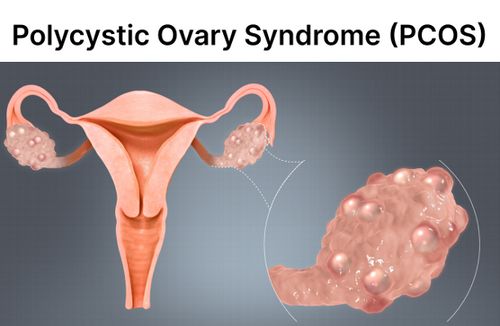Don’t ignore your PCOS
Sep 26, 2022 · 2 mins read
0
Share

Almost 4%–20% of women of reproductive age worldwide are affected by Polycystic Ovary Syndrome (PCOS). It is not a severe health problem but ignoring it can lead to other diseases like Type 2 diabetes, hypertension, and infertility.
Save
Share
PCOS is not to be confused with the rarer PCOD (Polycystic Ovarian Disease) in which a woman's ovaries produce immature or partially mature eggs in large numbers and over time these become cysts in the ovaries.
Save
Share
Three main symptoms of PCOS: 1. Irregular periods: Your periods may last for longer than a typical cycle of 5-7 days. And you might have fewer than nine periods a year.
Save
Share
2. Polycystic ovaries: Your ovaries might become larger with small cysts on the outer edges. These cysts contain immature eggs and they are called follicles. The ovaries might not function the way they should and the follicles fail to regularly release eggs.
Save
Share
3. Excess androgen: This may result in excess facial and body hair, or hirsutism. Sometimes, severe acne and male-pattern baldness can result. At least two of these symptoms can confirm PCOS.
Save
Share
Many people may get confused between PCOS and PCOD. But PCOS is more severe than PCOD. In PCOD, the ovaries release immature eggs that may lead to hormonal imbalance. Whereas in PCOS, endocrine issues make eggs prone to cysts and build-up in the ovaries.

Save
Share
The exact cause of PCOS is unknown, but things that play a role are insulin resistance, genetics, lifestyle, low-grade inflammation, and excess androgen.
Save
Share
Complications with PCOS can lead to infertility, gestational diabetes or pregnancy-induced high blood pressure, miscarriage or premature birth, non-alcoholic steatohepatitis, metabolic syndrome, depression, anxiety and eating disorders, and cancer of the uterine lining.
Save
Share
Lifestyle changes are crucial to beat PCOS. Maintaining a healthy weight, having a good diet, removing all processed food from your diet, and staying active all help in treatment.
Save
Share
Final Note: Be proactive in dealing with PCOS as it can significantly impact your quality of life. Worldwide, 10% of women suffer from PCOD and 4% - 20% from PCOS. If you are one of them, early diagnosis, treatment and weight control can help you avoid long-term complications.
Save
Share
0